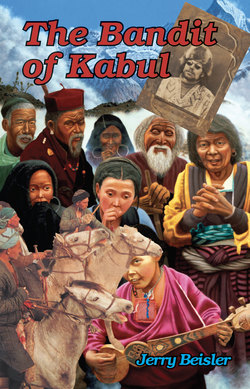Читать книгу The Bandit of Kabul - Jerry Beisler - Страница 16
На сайте Литреса книга снята с продажи.
ОглавлениеChapter Nine
“No great genius was ever without some tincture of madness.”
ARISTOTLE
Rebecca and I were invited to visit Lahore by a freaky group of actors who came through Kabul and charmed their way into staying a few days in Jangalak. They had talent, wit and wild looks. The theatrical troupe was a counter-culture sensation in Italy and had just appeared in the Fellini film “Roma.” Their fame stemmed from a brilliant scene in a previous Felleni blockbuster cinema hit. These “artistes” ended up in Lahore by signing a three-movie deal portraying drug-dealing hippies in Pakistani films.
Lahore was actually quite cosmopolitan. There was a thriving gay scene that was totally open and tolerated. We spent about five days there at a wonderful house with beautiful hanging gardens. Hashish was openly smoked in a few places where modern rhythm-oriented Pakistani music was played. Though rare, there were two or three very privileged women in attendance. This was the perk of being a female star in Pakistani films – you could go out in public in the company of foreigners and listen to music. After a while, I left Rebecca in the safety of the film colony and went up to meet Montreal Michael in Islamabad.
Pakistan is an artificially created country where five distinctly different tribes were cobbled together under one flag. Islamabad was the artificially created capitol. The only unifier was the Muslim religion. A difficult political situation was created because the tribes spoke five different languages.
The Grand Peace Mosque dominated the city that was created in the fifties and modeled after Western communities. All the houses had a driveway to the garage, a big front yard, and rambling, ranch-style homes with eight-foot high picture windows in front. Carefree, American TV sit-com families lived in neighborhoods and houses not unlike these built in the new Pakistani capital city. What made it so surreal was that instead of enclosing that big front yard with a picket fence or shrub border, the California-ranch-style homes were surrounded by high razor-wire fences. All the big picture windows were covered with massive anti-theft grills and the garages were boarded over and permanently closed.
Zulfiqar Ali Bhutto was the very progressive Prime Minister who was running things in Pakistan. Bhutto had graduated with honors from the University of California in 1950 and was admitted to Oxford. He embraced the American Federalist system and professed a dream of melding the five distinct tribal areas into one modern state. Many first-generation Pakistani leaders were heavily inluenced by having been educated in the U.S. of the 1950s. California ranch-style homes in safe neighborhoods were their vision. The razor-wire fences were the reality.
Prime Minister Bhutto made a fatal flaw in his political maneuvering. There was a great jockeying for what the official language of the new Pakistan would be. All these years after the creation of the country, the actual lingua franca of Pakistan was Urdu. Urdu was a coarse and profane multi-ethnic language that had developed out of the military in the nineteenth century. Bhutto preferred Sind. Sind was a beautiful old language that was still spoken in only one part of Pakistan by the intelligensia and wealthiest class. Choosing Sind to be the national language was a grave political miscalculation on Bhutto’s part. Bhutto went from being the darling of a military establishment that had fought India to a stalemate in the 1971 war, to facing trumped-up charges that sent him to the gallows.
The poetic Sind language brought to mind Pakistani art and culture and was spoken by the cinema community in Lahore. Urdu symbolized Islamabad’s garage doors nailed shut and dry swimming pools and was the metaphor for a backwards march toward religious fundamentalism.
Montreal Michael had been in Islamabad for six months and was slowly but surely assembling the components from the city’s scientific supply outlets necessary to distill pollen and create hash oil. It was a tedious and unpleasant task but he was undaunted and determined to see his hash oil dream factory built.
Michael met two other Canadians in Islamabad buying laboratory equipment at a scientific supply outlet for the same purpose. Cadillac and the Mad Professor were from British Columbia and, sharing the same nationality and the same purpose, they all became associates. We all went out for kabobs and info exchange.
We talked it through, always admiring the great, though somewhat bizarre, entrepreneurial skills of anyone who could come up with an idea like this. The Mad Professor, in a kindly manner, explained that Montreal Michael, while a genius, would never be able to build the elaborate factory that he was contemplating. He said that the seals that were needed to secure the lab pipe-works were not made well enough in Asia, and thus were dangerously unreliable. They would not be able to handle the engineering tasks that Michael was designing. The Mad Professor suggested a smaller, slower version that produced an ounce of hash oil a day, instead of a gallon an hour. The Cadillac offered to share the blueprints.
Seriously pondering their suggestions, I went back to Lahore to get Rebecca and return to Kabul. I was very glad to be rockin’ in my sweet baby’s arms again. Unfortunately the rockin’ didn’t last long because I was called back to Karachi, Pakistan, by an excited Dutch Bob.
